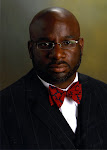 The following was written by Bishop Henry McNeal Turner in 1896 as an introduction to a text written by a minister in the ranks of AME Church clergy. However, as you will see, it speaks as though written today. While it is written for a book dealing with the AME Church and Africa, Bishop Turner expresses a concern for many other issues, including: social (in)justice in the Congress, clergy education (or the lack thereof), and the budding seeds of Black theology. The complete text can be found at the Documenting the American South website. Here is Bishop Turner in his own words:
The following was written by Bishop Henry McNeal Turner in 1896 as an introduction to a text written by a minister in the ranks of AME Church clergy. However, as you will see, it speaks as though written today. While it is written for a book dealing with the AME Church and Africa, Bishop Turner expresses a concern for many other issues, including: social (in)justice in the Congress, clergy education (or the lack thereof), and the budding seeds of Black theology. The complete text can be found at the Documenting the American South website. Here is Bishop Turner in his own words:The present age is not famous for deeds of dare and adventure; cheap notoriety, evanescent popularity and temporary honors appear to satisfy the ambition of the present generation. Inordinate selfishness has such a grasp upon the men of today, that one is rarely found who is willing to sacrifice his own ease and comfort for the good of others or for a name that will go down to coming ages. Merit, pure and simple, holds a secondary place in these times of scheme and artifice. If we look among statesmen, we find United States senators who have succeeded in getting rich through the issue of bonds upon imaginary stock and futures--actually buying up legislatures for a seat in that grave and venerable assembly, when they know they will not be able to make a speech upon any important question until they have hired some professional speech-writer to manufacture one for them and type-print it, so they can read it as any newspaper article...
The same condition of things aptly applies to the ecclesiastical sphere. Ministers of the gospel in the main no longer hunger and thirst for a profound knowledge of the Bible and a thorough familiarity with theological lore. The chief aim is to squeeze by the committees on examination and get to be deacons and elders, regardless of the necessary qualifications to meet the requirements therewith connected. And if they can flaunt a diploma from some third-class institution of learning, they feign to be insulted if a committee should subject them to a reasonable examination; and when once admitted into the ministry, study and protracted meditation cease to be a virtue. A large majority appear to be ignorant of the fact, that true education requires a lifetime of hard study, and that wit, anecdotes, florid sentences and a few rhetorical embellishments are no test of profundity, either in a literary or an intellectual aspect. Thousands of gospel ministers seem to think they can trick and cunning their way to the hearts of the people, or to their attention at least, and finally to a seat in heaven, without half of the proficiency required of a blacksmith, or a carpenter, or in any other mechanical profession, because it involves talk, forgetful that when talk is defective, or trivial and light, that the people will fully realize it and grade their intelligence and ability accordingly. I know of ministers carrying the title of D.D. who will go to bed at the earliest opportunity and lie there till ten and eleven o'clock next day and complain about not having time to read. Such moral sluggards God never intended to be the directors of His people. Ministerial fitness and fidelity call for industry, patience, endurance, invincibility and consecrated devotion, as well as the sacrifice of self, in all the phases that involve the individual himself, or his family and domestic relations. And in as much as his calling is infinitely more lofty than the statesman, the jurist, the warrior, the explorer, the inventor, the discoverer, or any other pursuit or profession of a secular nature, so his sacrifices heroism, adventures and risks should be infinitely more stupendous and mighty, especially so as Christ Jesus our Lord has promised to be with him till the world shall end...
Churchiologically [sic], the same condition of things exists. The only aspiration for fame, honor and immortality that exists to an insignificant exception is at the expense of others. Many of the pastors will build large churches on credit and have their names engraved on the corner-stone, and hasten away for another minister and the congregation to pay the debt. Those who aspire to distinction in the ranks of the ministry, do so almost invariably through the votes of others, seeking to be elected to the Bishopric, or to some general office, instead of aspiring to distinction by writing hymns or learned works on Theology, Astronomy, Geology, Geography, Chemistry, Intellectual and Moral Philosophy, or delivering a series of lectures on Ancient History, or delving into the labyrinths of Archaeology and establishing the claims of nature to the primitive color of man, and showing through it that all men started black and remained so till God said, "Let there be white," just as He said "Let there be light."
Fraternally,
Cited in: Ridgel, A. Africa and African Methodism.










